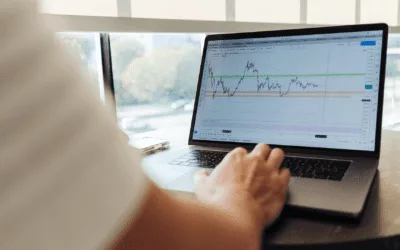Blog
Sign Up for Our Newsletter
When you sign up for our weekly newsletter, you'll know about our latest blog post and podcast episodes; each one containing important financial tips and tidbits for doctors and medical professionals. You can also stay up to date on our podcast by downloading the Financial Clarity for Doctors Podcast wherever you find podcasts.
10 Things To Do With Your Stimulus Check in Residency
With a fresh new wave of stimulus money hitting people’s bank accounts this week, many residents & fellows (and med students, for that matter) will be receiving their $1,400 stimulus checks. Today we thought it would be a good idea to lay out some things to do with your stimulus check while in residency.
Fear of Missing Out
Every investor is looking for the next big thing that starts from the ground and revolutionizes the world in a few short years. The problem is, for every one of those companies, hundreds fizzle out and fade into the sunset. Some of the most popular and valuable companies 20 years ago don’t even exist today. And some of the most popular and valuable companies today didn’t exist 20 years ago!
The First Step to Achieving Financial Independence
The first step to achieving financial independence is to define what financial independence means to you. It’s going to be different for everyone. How do you want your life to look? What do you want to do for work if you could choose? What would you like to do in your free time? How much free time do you want to have?
Own-Occupation Disability Insurance
Own occupation disability insurance. It’s a regularly searched term for specialized professionals, such as doctors. Some people will search for physician disability insurance. Others may search for occupational disability insurance. I can see how own occupation disability insurance and occupational disability insurance can be interchangeable terms. The more commonly referenced terminology for occupation-specific disability insurance is “own occupation disability insurance,” so we’ll stick with that for today.
What To Do With an Old Retirement Account
You have just decided to change companies, or you just got laid off, the last thing you are probably thinking about is what to do with that former (soon to be) employer’s retirement plan (401k/403b/457) you have been contributing to. Well, it is time to start thinking about it.
Is Your Mom’s IRA SECURE?
The name sounds assuring, but is the SECURE Act leaving womxn feeling SECURE about how inherited IRA’s (or 401(k)’s) are being passed along to their beneficiaries? From what I have seen over the past few months, NO! Let’s dive into why and what the SECURE Act did to the Stretch IRA.
Financial Planning 101: Spending
It may make you happy now, spending money on the things you want today, but you will be miserable later when you realize you cannot achieve the real things you want in life. Or you can make some sacrifices now, knowing you will be happy and satisfied for the rest of your life.
Why Day Trading is a Bad Idea
2020 has been quite the year. Given the dynamics of it all, people have found themselves with more free time. Combine that with a volatile stock market, and many individuals have taken up the hobby of day trading stocks. In short, day trading is the act of buying and selling stocks in a short period, usually based on price movements and headlines.
Benefits of Financial Planning
October is National Financial Planning Month, so it’s fitting we write about the benefits of financial planning! I define financial planning as the ongoing practice of creating and updating a strategy to achieve your goals. It’s not a one-time thing. It’s a continuous habit or routine. No different than regular car maintenance or dental care. Have periodic checkups with regular care in between.
How Much Income Do I Need to Protect
One of the most overlooked components of financial planning is income protection. Income is the linchpin that holds your entire financial world together. Unless you are independently wealthy and don’t need to work anymore, you probably rely pretty heavily on your earnings. If this is the case, you should probably do everything in your power to ensure your income continues to flow, even if you are unable to work.
Year-End Financial Planning Checklist
As the third quarter comes to an end, and we enter the last three months of the year, I thought it would be a good idea to put together a year-end financial planning checklist for you. Why am I writing a year-end checklist now instead of in December? Let’s be real, we don’t get much done between Thanksgiving and New Year’s, so you only have about a month and a half remaining to tackle everything. Below are ten things to take a look at as part of your regular financial planning housekeeping to maximize your opportunities and protect yourself where necessary.
How Much House Can I Afford?
First things first, we need to have a down payment of some sort for the house. Even if you qualify for a special financing program, like a VA loan, or even some physician mortgage loans that require 0-5% down, you will still need some money for closing costs ($10,000 give or take). The lender will also require you to have typically 4-6 months of reserves available after the down payment, and closing costs are accounted for (could vary by lender and property type/cost). They don’t let you liquidate your entire savings to use for the down payment.











